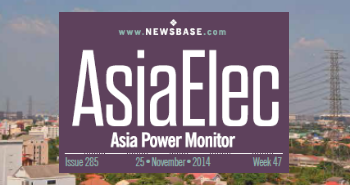AsiaElec: Analysts urge caution on Singapore’s small modular reactor plans

Singapore’s ambition to diversify its energy mix with small modular reactors (SMRs) faces scepticism from experts citing high costs, safety concerns and limited feasibility for the compact city-state, MSN reported.
While the nation explores advanced nuclear technologies through agreements like the 123 Agreement with the US, energy analysts warn against premature adoption of SMRs, which remain largely unproven at a commercial scale.
Grant Hauber, a strategic energy finance adviser at the Institute for Energy Economics and Financial Analysis (IEEFA), highlighted the steep capital costs of SMRs, which rival those of full-scale nuclear plants on a per-megawatt basis. Current estimates for SMR projects exceed $10,000 per kilowatt, making them significantly costlier than Singapore’s existing energy sources. With fewer than 13,000 MW of installed capacity and peak demand at 7,700 MW, Singapore would require multiple SMRs to make a meaningful contribution to its energy mix, further exacerbating costs and raising land-use challenges.
Dinita Setyawati of Ember, a Southeast Asian energy think-tank, echoed these concerns, suggesting that SMRs might be insufficient to replace a significant portion of Singapore’s current oil and natural gas-dependent energy supply. Instead, she advocated for complementary solutions that can scale more rapidly and affordably.
Safety remains a major hurdle for nuclear energy in Singapore. Setyawati pointed to global precedents like the Fukushima disaster to underscore the risks of even minor breaches. While Singapore’s advanced technological infrastructure could support robust safety protocols, the management of high-level radioactive waste, which remains hazardous for thousands of years, poses ethical and logistical dilemmas. Hauber emphasised the absence of viable global solutions for long-term nuclear waste disposal, warning that Singapore would need to manage such waste domestically.
Both analysts urged Singapore to prioritise renewable energy imports over nuclear investments. Given the city-state’s limited land space, solutions such as solar energy imports from neighbouring countries are viewed as more practical and less risky in the near term. Hauber stressed that renewable energy options provide faster, scalable solutions without the long-term liabilities associated with nuclear power.
Despite the concerns, Singapore’s Energy Market Authority (EMA) remains open to nuclear technologies, estimating that nuclear power could meet 10% of the country’s energy needs by 2050. Second Minister for Trade and Industry Tan See Leng announced plans to develop a pool of 100 nuclear energy experts to support long-term exploration of advanced nuclear solutions.
While SMRs offer theoretical benefits like enhanced safety and flexibility, analysts caution that Singapore’s small size, high population density, and the unproven commercial viability of SMRs make them a less suitable option for the nation’s energy transition. For now, renewable imports and diversification of existing resources remain the most practical paths forward.
If you'd like to read more about the key events shaping the Asian power sector then please click here for NewsBase's AsiaElec Monitor.


Follow us online